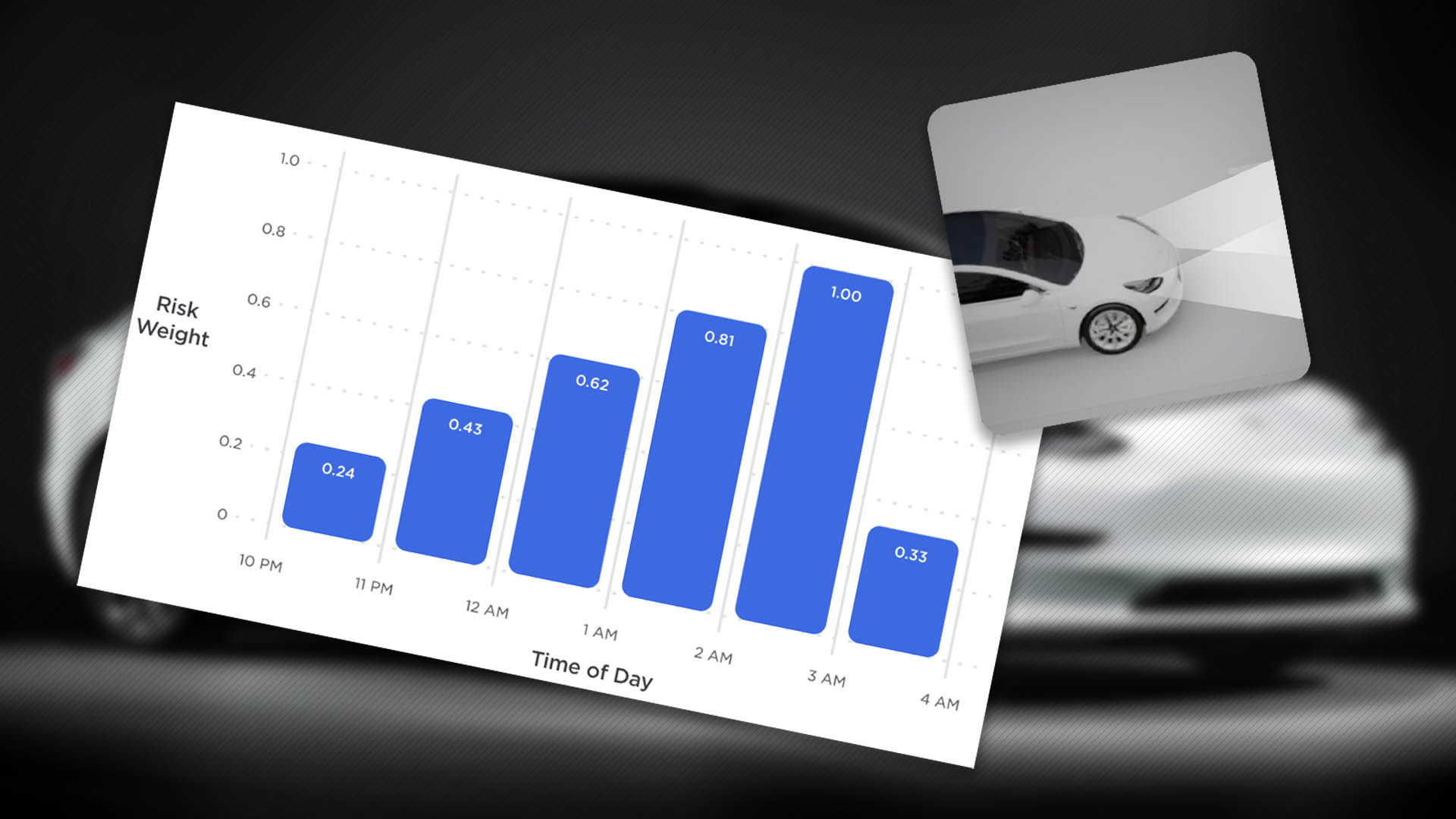

Tesla owners have complained about the high cost of insurance for years. Elevated rates have been attributed to “higher-than-average” claims, combined with what might as well be a parts and service monopoly. Eventually, Tesla even created its own insurance product that uses real-time data to adjust the monthly cost of its insurance premiums on-the-fly.
Many Tesla owners have switched to the service in the 12 states where Tesla insurance is now offered. But as owners quickly discovered, it’s not all sunshine and rainbows. One of the biggest pain points for owners has been night driving, as Tesla Insurance heavily weighs the time of driving against an owner’s premium.

The price that policyholders pay for Tesla insurance is through a gamified magic number called a “Safety Score.” Using real-time data from in-car telematics, Tesla can record behavior like hard braking, aggressive turning, unsafe following, excessive speeding, and hard braking—all of which are used to directly calculate a vehicle’s premium based on driving behavior. That means someone with a lead foot or who often brakes late will pay more for their insurance monthly than someone who maintains a safe following distance and obeys the speed limit. It’s like one of those optional OBDII dongles offered by your traditional insurance company, only baked directly into the car.
One important factor that affects a driver’s Safety Score is how often the vehicle is driven between 10 p.m. and 4 a.m. In fact, Tesla says that it can weigh as much as 15.2% on the overall score.
“Plan your trips to avoid driving between the hours of 10 pm and 4 am to help reduce the likelihood of a dangerous driving environment,” reads Tesla’s Safety Score support article.
The use of nighttime driving affecting the cost of the insurance premium has been fairly polarizing to drivers who subscribe to Tesla Insurance. While some are happy to have their rates personalized, many others are complaining all over Reddit about how heavily it affects their rates for just a small amount of driving. It’s not a new thing, either, as drivers have been upset about the impact of late-night driving for months. Some have even had to adjust their morning commute by a matter of minutes—not even entering their vehicle inside the window of time spelled out by Tesla to avoid the impact on their Safety Score.

According to data from the National Highway Traffic Safety Administration’s Fatality and Injury Reporting System Tool, there were an estimated 4,335,820 property-only vehicle crashes in 2021. Of those, around 68% occurred during the daytime. A similar percentage—66%—that involved injuries also occurred during the daytime.
Where data becomes skewed is with fatal accidents. Traffic fatalities hit a 16-year high in 2021, an uptick of 10% from the previous year. NHTSA reports that of the 39,508 fatal motor vehicle crashes in 2021, which killed 42,915 people, 54% of the incidents occurred at nighttime.
Tesla also recently enabled variable time-of-use rates at its Supercharging stations. This enables the automaker to charge more or less for electricity delivered to cars depending on the time of day when they plug in. Coincidentally, this makes it cheapest for Tesla owners to charge when it would be most expensive to drive with Tesla Insurance.

One Supercharger in Florida, for example, is 64% cheaper to charge during the hours that affect Tesla’s Insurance product the most:
- 4 am to 8 am: $0.35 per kWh
- 8 am to 12 am: $0.39 per kWh
- 12 am to 4 am: $0.14 per kWh
It’s worth noting that this probably isn’t a gimmick to encourage customers to drive their vehicles late at night to get a charge, especially since most EV owners are at home. Instead, it’s likely that the pricing is a product of time-of-use and is meant to encourage owners to only use Supercharging stations when needed, for as long as needed to prevent congestion. Or, perhaps, the pricing directly reflects electricity supply costs.
As for insurance, it’s unlikely that Tesla will drop the metric. The automaker tweaked how night driving affects a driver’s Safety Score in multiple iterations of its insurance formula, though it has not shown any indication of removing it despite rampant displeasure from customers online. But to Tesla’s credit, NHTSA data does back up the increased number of fatalities that occur at night, and perhaps its fleet data shows even more refined details that aren’t available to public eyes.
Got a tip or question for the author? Contact them directly: rob@thedrive.com